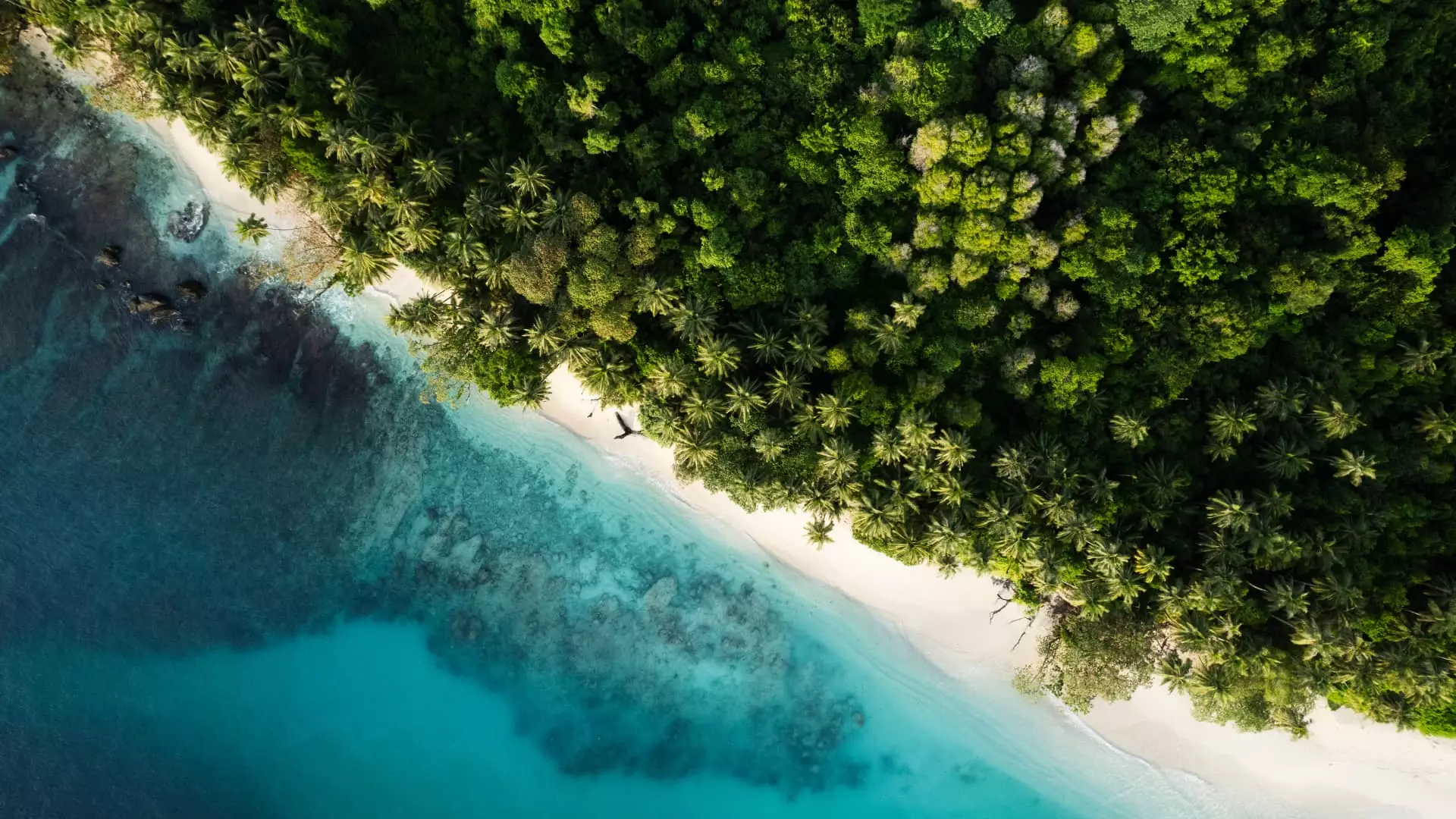The story of Pinang Island stands as a testament to vision, perseverance, and the delicate balance between human intervention and nature. When Richard Kvech and his team of Czech adventurers initially set foot on this untouched paradise, they encountered not much more than a dilapidated fisherman’s shelter and pristine wilderness. Their dream of developing an eco-retreat into something simultaneously luxurious and environmentally respectful has turned a once-remote patch of land into a burgeoning destination for holistic tourism.
The inception of an eco-resort concept took root when Tomas Ouhel, a member of Kvech’s group, stumbled upon this hidden gem while working on conservation efforts nearby. This serendipitous discovery sparked a year of deliberations, during which Kvech and his three friends envisioned an escape that would respect the island’s untouched natural beauty while providing an inviting venue for visitors. After negotiations with local landowners, they secured a half-century lease to formally initiate their project.
Drawing from their resourcefulness, Kvech and his friends set about constructing the necessary infrastructure. Using local materials, they built bungalows and established sustainable water sources, all while ensuring that their activities would minimize ecological disruption. This focus on environmental consciousness became the cornerstone of Pinang Island’s identity, and the group’s efforts soon began to materialize into a thriving eco-retreat.
The transformation of Pinang Island was not without its challenges. The four friends poured their resources into establishing a guest facility that emphasizes sustainable living. From solar panels to organic waste management, their approach to hospitality catered not only to visitors but also to the island’s ecosystem. Each structure was crafted with care, with an embedded philosophy of permaculture that enhanced native flora and fauna instead of displacing them.
Having welcomed its first paying guests two years ago, the resort has since become a sought-after retreat for those seeking a harmonious connection with nature. Catering to a variety of guests—from yoga enthusiasts to surf aficionados—the establishment has proven that sustainability doesn’t have to come at the expense of comfort. The rates, which include a comprehensive package of activities and amenities, further underscore the intent to create an inclusive yet intimate environment.
One of the most enticing aspects of staying on Pinang Island is the culinary experience. The island’s guests are treated to farm-to-table meals, made possible by the on-site fruit and vegetable garden. By promoting an organic lifestyle and conscientious dining practices, the retreat generates minimal waste while cultivating a deep respect for the land. The introduction of chickens has also enhanced the food experience, ensuring fresh eggs enhance daily meals.
Kvech continues to exert his influence over marketing and permaculture initiatives, demonstrating how intertwined the island’s development is with sustainable practices and a commitment to local resources. This careful balancing act has not only enriched guests’ experiences but has also fostered a sense of community with the surrounding environment.
However, the path to creating this idyllic retreat was not without peril. Recent incidents have highlighted the risks involved in accessing such a remote locale. Following a tragic boat accident en route to the island that claimed the life of a local captain, Kvech and his team implemented rigorous safety initiatives. They recognized the need for enhanced marine safety protocols and began training local sea captains under the auspices of the Fifan Foundation, named in memory of the lost captain.
Their efforts reflect a commitment not only to their guests but also to the greater community and the safety standards necessary for this burgeoning tourism sector. They have changed the transit routes to make them safer, demonstrating a proactive approach to ensuring the well-being of both visitors and locals alike.
As Pinang Island cements its reputation as a unique travel destination, Kvech remains steadfast in his vision. The resort aims to maintain its intimate atmosphere, welcoming only a modest number of guests. This not only fosters a sense of community among visitors but also enhances the guests’ experience, allowing them to engage genuinely with the island and its offerings.
Kvech’s philosophy of eco-tourism deviates from the traditional high-end vacation model, appealing more to those yearning for adventure and authentic experiences rooted in nature. With a balanced approach to tourism that respects local communities and ecosystems, Pinang Island serves as a prime example of how eco-lodges can flourish in today’s travel landscape.
As Kvech continues to divide his time between the Czech Republic and Pinang Island, he reflects on the realities of living in such a remote paradise, admitting that every challenge faced is part of a rewarding journey. The evolution of Pinang Island illustrates that with determination, awareness, and a deep respect for nature, even the most ambitious dreams can transform the landscape of eco-tourism.


Leave a Reply